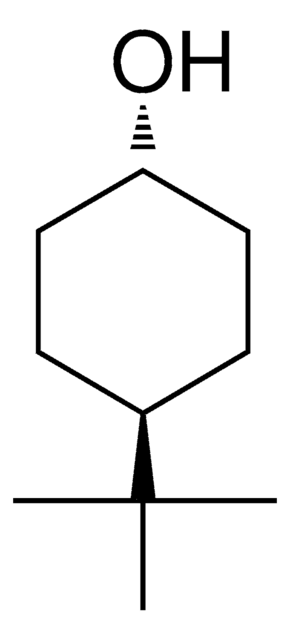B92303
4-tert-Butylcyclohexanone
99%
Synonym(s):
4-(1,1-Dimethylethyl)cyclohexanone, 4-tert-Butylcyclohexanone, p-tert-Butylcyclohexanone
About This Item
Recommended Products
Assay
99%
form
crystals
bp
113-116 °C/20 mmHg (lit.)
mp
47-50 °C (lit.)
SMILES string
CC(C)(C)C1CCC(=O)CC1
InChI
1S/C10H18O/c1-10(2,3)8-4-6-9(11)7-5-8/h8H,4-7H2,1-3H3
InChI key
YKFKEYKJGVSEIX-UHFFFAOYSA-N
Looking for similar products? Visit Product Comparison Guide
Related Categories
Signal Word
Warning
Hazard Statements
Precautionary Statements
Hazard Classifications
Acute Tox. 4 Oral - Aquatic Chronic 3
Storage Class Code
11 - Combustible Solids
WGK
WGK 2
Flash Point(F)
204.8 °F - closed cup
Flash Point(C)
96 °C - closed cup
Personal Protective Equipment
Certificates of Analysis (COA)
Search for Certificates of Analysis (COA) by entering the products Lot/Batch Number. Lot and Batch Numbers can be found on a product’s label following the words ‘Lot’ or ‘Batch’.
Already Own This Product?
Find documentation for the products that you have recently purchased in the Document Library.
Customers Also Viewed
Our team of scientists has experience in all areas of research including Life Science, Material Science, Chemical Synthesis, Chromatography, Analytical and many others.
Contact Technical Service







